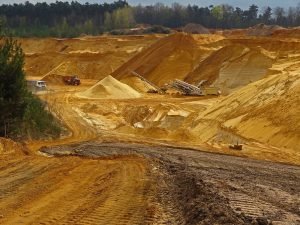Developing new national environmental standards, further streamlining approval processes with State governments and national engagement on indigenous cultural heritage will be prioritised, following the release of an interim report into Australia’s environmental laws.
Minister for the Environment Sussan Ley said Professor Graeme Samuel’s interim report, released yesterday, established that the existing Environment Protection and Biodiversity Conservation Act 1999 has become cumbersome and does not serve the interests of the environment or business.
“Not surprisingly, the statutory review is finding that 20-year-old legislation is struggling to meet the changing needs of the environment, agriculture, community planners and business,” Minister Ley said.
“This is our chance to ensure the right protection for our environment while also unlocking job-creating projects to strengthen our economy and improve the livelihoods of every-day Australians. We can do both as part of the Australian Government’s COVID recovery plan.”
Minister for Resources, Water and Northern Australia Keith Pitt welcomed the findings as a step towards common sense in managing the balance between industry and environmental interests.
He said the review should help remove duplication in the project approval process and particularly welcomed any move to establish ‘single tough approvals’ and bilateral agreements with state and territory governments by establishing national environmental standards.
The Commonwealth will commit to the following priority areas on the basis of the interim report:
- Develop Commonwealth led national environmental standards which will underpin new bilateral agreements with State Governments.
- Commence discussions with willing states to enter agreements for single touch approvals (removing duplication by accrediting states to carry out environmental assessments and approvals on the Commonwealth’s behalf).
- Commence a national engagement process for modernising the protection of indigenous cultural heritage, commencing with a round table meeting of state indigenous and environment ministers. This will be jointly chaired by Minister Ley and the Minister for Indigenous Australians Ken Wyatt.
- Explore market based solutions for better habitat restoration that will significantly improve environmental outcomes while providing greater certainty for business. The Minister will establish an environmental markets expert advisory group.
In line with the interim report findings, the Commonwealth will maintain its existing framework for regulating greenhouse gas and other emissions, and would not propose any expansion of the EPBC Act in this area.
The Commonwealth will take steps to strengthen compliance functions and ensure that all bilateral agreements with States and Territories are subject to rigorous assurance monitoring. It will not, however, support additional layers of bureaucracy such as the establishment of an independent regulator.
Professor Samuel labelled the EPBC Act as “ineffective” and “not fit to address current or future environmental challenges” as it does not enable the Commonwealth to protect and conserve environmental matters that are important for the nation.
“The EPBC Act results in duplication with state and territory environment laws. The Commonwealth process for assessing and approving developments is slow, complex to navigate and costly for business. Slow and cumbersome regulation results in significant additional costs for business, with little appreciable benefit for the environment.”
Professor Samuel said “new, legally enforceable National Environmental Standards should be the centrepiece of reform—setting clear and concise rules that deliver outcomes for the environment and enable development to continue in a sustainable way.
Professor Samuel’s interim report lists the following proposed key reform directions:
- The Commonwealth should continue to focus on existing areas of responsibility with no expansion to regulate new environmental matters.
- New, legally enforceable National Environmental Standards should be established to deliver ecologically sustainable development which focus on outcomes rather than process.
- Streamlining and greater efficiency through devolution in a way that provides community confidence, with National Environmental Standards as the foundation to set the outcomes needed regardless of who the decision maker is.
- Strong and transparent assurance to ensure devolved decisions deliver the intended outcomes.
- Australia’s Indigenous cultural heritage laws need to be reviewed and more work is needed to support better engagement with Indigenous Australians and to respectfully incorporate Traditional Knowledge of Country in how the environment is managed.
- Build trust in the system through increased transparency of information and decision-making to reduce the need to resort to court processes to discover information. Legal challenges should be limited to matters of outcome, not process.
- A quantum shift in the quality of information is needed, so that the right information is available at the right time for the community, proponents and decision-makers. This will deliver better decisions, and faster and lower cost assessments and approvals.
- A coherent framework to monitor and evaluate the effectiveness of the EPBC Act is needed, including revamped State of the Environment reporting.
- Restoration of the environment must be a focus. Available habitat needs to grow to be able to support both development and a healthy environment. Explore ways to accelerate environmental restoration such as markets and co-investing with the philanthropic and private sectors.
- An independent compliance and enforcement regulator that is not subject to actual or implied political direction. It should be properly resourced and have a full toolkit of powers.
Click here to view the Interim Report.
The interim report will now be open for public consultation in July, August and September, before Professor Samuel’s Final Report, including recommendations to government, is due to be delivered to the Minister for the Environment by 31 October 2020.



